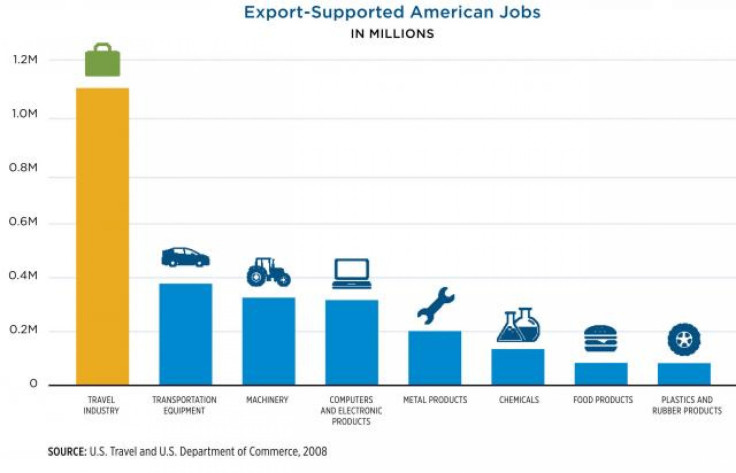Need A Job? Try The Travel Industry

Are you out of work and looking for a job? According to a first-of-its-kind study from the U.S. Travel Association, workers who begin their careers in the travel industry have greater access to educational opportunities, enjoy better career progression and achieve higher wages. Moreover, though the national unemployment rate has remained stagnant, travel has actually added jobs 16 percent faster than the rest of the economy since the overall employment recovery began in March 2010.
U.S. Travel’s new report, analyzed by Oxford Economics, compares workers in the travel industry with those in other fields using 30 years of data from the U.S. Bureau of Labor Statistics (BLS). The BLS has tracked more than 5,000 workers since 1979, interviewing them every year through 1994, and every two years since.
Roger Dow, president and CEO of U.S. Travel, believes the data is conclusive.
“Workers whose first job is in the travel industry progress further in their careers than individuals who get their start in other industries, and travel industry work experience helps Americans earn higher wages and attain an education," he said. "Travel jobs provide important, transferable skills that are indispensable to career success, and careers in travel deliver financial security with the majority of travel industry workers earning a middle-class income or higher."
The study found that a third of the 5.6 million Americans who work part-time to support themselves while furthering their education are employed by the travel industry. Among those studied who began their careers in the travel industry, 33 percent earned at least a bachelors degree and two out of five went on to earn more than $100,000 per year.
The U.S. Travel Association believes these jobs, which cannot be outsourced, are contributing to the growth of the American middle class, as more than half of all travel industry employees earn a middle-class salary or higher.
"In recent years, the travel industry has quietly emerged as one of America's leading drivers of growth and job creation," said David Huether, senior vice president for research and economics at U.S. Travel. "Every dollar spent on travel has a ripple effect benefiting other sectors of the economy. In fact, the travel industry injects $1.9 trillion into the U.S. economy and supports 14.4 million jobs."
U.S. Travel estimates that for every 35 foreign visitors, one new American job is created. President Obama took note of the travel industry's role in the economy and put travel and tourism on the agenda as a potential economy-booster in 2009, and he signed the Travel Promotion Act into law in March 2010. The U.S. secretary of commerce then appointed an 11-member board of directors to govern a public-private partnership called Brand USA that was charged with inspiring travelers to “Discover America.”
Brand USA launched the nation’s first tourism promotion ads in May, and by the third quarter of 2012, the UN World Tourism Organization figures showed that tourism earnings in the U.S. were up 8 percent, second in the world only to Hong Kong in terms of growth.
U.S. Travel Association believes further growth in business travel and domestic and international inbound tourism next year will likely create another 100,000 American jobs.
© Copyright IBTimes 2024. All rights reserved.












